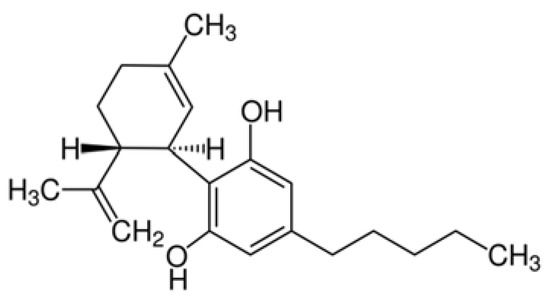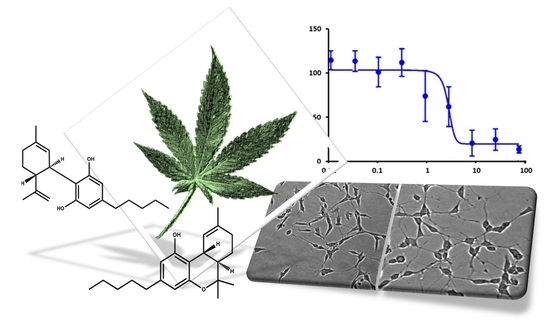 “Introduction: Neuropsychiatric symptoms are an integral component of the natural history of dementia, occurring from prodromal to advanced stages of the disease process and leading to increased burden and morbidity. Clinical presentations are pleomorphic, and clinical management often requires combination of pharmacological and non-pharmacological interventions. However, limited efficacy and a non-negligible incidence of adverse events of psychotropic drugs reinforce the need for novel therapeutic options.
“Introduction: Neuropsychiatric symptoms are an integral component of the natural history of dementia, occurring from prodromal to advanced stages of the disease process and leading to increased burden and morbidity. Clinical presentations are pleomorphic, and clinical management often requires combination of pharmacological and non-pharmacological interventions. However, limited efficacy and a non-negligible incidence of adverse events of psychotropic drugs reinforce the need for novel therapeutic options.
Aims: To review the evidence supporting the use of medical cannabinoids for the treatment of neuropsychiatric symptoms of dementia (NPS).
Results: Fifteen publications with original clinical data were retrieved, being 5 controlled clinical trials, 3 open-label/observational studies, and 7 case reports. Most studies indicated that the use of medical cannabinoids engendered favorable outcomes for the treatment of neuropsychiatric symptoms related to moderate and advanced stages of dementia, particularly agitation, aggressive behavior and sleep and sexual disinhibition.
Conclusion: Medical cannabinoids represent a promising pharmacological approach for the treatment of NPS, with preliminary evidence of benefit at least in moderate to severe dementia. Controlled trials with longitudinal design and larger samples are required to examine the long-term efficacy of these drugs in different types and stages of dementia, in addition to their adverse events and risk of interactions with other drugs. Many pharmacological details are yet to be determined, such as dosing, treatment duration and concentrations of active compounds (e.g., CBD/THC ratio) in commercial preparations of medical cannabinoids.”

 “As the major nonpsychotropic constituent of
“As the major nonpsychotropic constituent of 
 “Alzheimer’s disease (AD) is characterized by structural damage, death, and functional disruption of cholinergic neurons (ChNs) as a result of intracellular amyloid-β (Aβ) aggregation, extracellular neuritic plaques, and hyperphosphorylation of protein tau (p-Tau) overtime.
“Alzheimer’s disease (AD) is characterized by structural damage, death, and functional disruption of cholinergic neurons (ChNs) as a result of intracellular amyloid-β (Aβ) aggregation, extracellular neuritic plaques, and hyperphosphorylation of protein tau (p-Tau) overtime. “Background: Frontotemporal dementia (FTD) is characterized by progressive deterioration in behaviors, executive function and/or language. The behavioral variant (Bv) is characterized by disinhibition and obsessive/compulsive behaviors. These symptoms are sometimes resistant to medications. This series examines patients suffering with treatment-resistant Bv-FTD who were prescribed cannabinoid and related compounds for other indications.
“Background: Frontotemporal dementia (FTD) is characterized by progressive deterioration in behaviors, executive function and/or language. The behavioral variant (Bv) is characterized by disinhibition and obsessive/compulsive behaviors. These symptoms are sometimes resistant to medications. This series examines patients suffering with treatment-resistant Bv-FTD who were prescribed cannabinoid and related compounds for other indications. “The aberrant accumulation of disease-specific protein aggregates accompanying cognitive decline is a pathological hallmark of age-associated neurological disorders, also termed as proteinopathies, including Alzheimer’s disease, Parkinson’s disease, Huntington’s disease, amyotrophic lateral sclerosis and multiple sclerosis.
“The aberrant accumulation of disease-specific protein aggregates accompanying cognitive decline is a pathological hallmark of age-associated neurological disorders, also termed as proteinopathies, including Alzheimer’s disease, Parkinson’s disease, Huntington’s disease, amyotrophic lateral sclerosis and multiple sclerosis. “Cannabidiol (CBD) is a non-psychoactive phytocannabinoid known for its beneficial effects including antioxidant and anti-inflammatory properties. Moreover, CBD is a compound with antidepressant, anxiolytic, anticonvulsant and antipsychotic effects. Thanks to all these properties, the interest of the scientific community for it has grown.
“Cannabidiol (CBD) is a non-psychoactive phytocannabinoid known for its beneficial effects including antioxidant and anti-inflammatory properties. Moreover, CBD is a compound with antidepressant, anxiolytic, anticonvulsant and antipsychotic effects. Thanks to all these properties, the interest of the scientific community for it has grown. “Background: Older adults (≥50 years) represent the fastest-growing population of people who use cannabis, potentially due to the increasing promotion of cannabis as medicine by dispensaries and cannabis websites. Given healthy aging and cannabis use are both associated with cognitive decline, it is important to establish the effects of cannabis on cognition in healthy aging.
“Background: Older adults (≥50 years) represent the fastest-growing population of people who use cannabis, potentially due to the increasing promotion of cannabis as medicine by dispensaries and cannabis websites. Given healthy aging and cannabis use are both associated with cognitive decline, it is important to establish the effects of cannabis on cognition in healthy aging. “Alzheimer’s disease (AD) is a central nervous system disease characterized by dementia, which has now become a major threat to global health.
“Alzheimer’s disease (AD) is a central nervous system disease characterized by dementia, which has now become a major threat to global health. “In this proof-of-concept study, the antioxidant activity of phytocannabinoids, namely cannabidiol (CBD) and Δ9- tetrahydrocannabinol (THC), were investigated using an in vitro system of differentiated human neuronal SY-SH5Y cells.
“In this proof-of-concept study, the antioxidant activity of phytocannabinoids, namely cannabidiol (CBD) and Δ9- tetrahydrocannabinol (THC), were investigated using an in vitro system of differentiated human neuronal SY-SH5Y cells.
 “Background/objectives: Use of cannabis is increasing in a variety of populations in the United States; however, few investigations about how and for what reasons cannabis is used in older populations exist.
“Background/objectives: Use of cannabis is increasing in a variety of populations in the United States; however, few investigations about how and for what reasons cannabis is used in older populations exist.